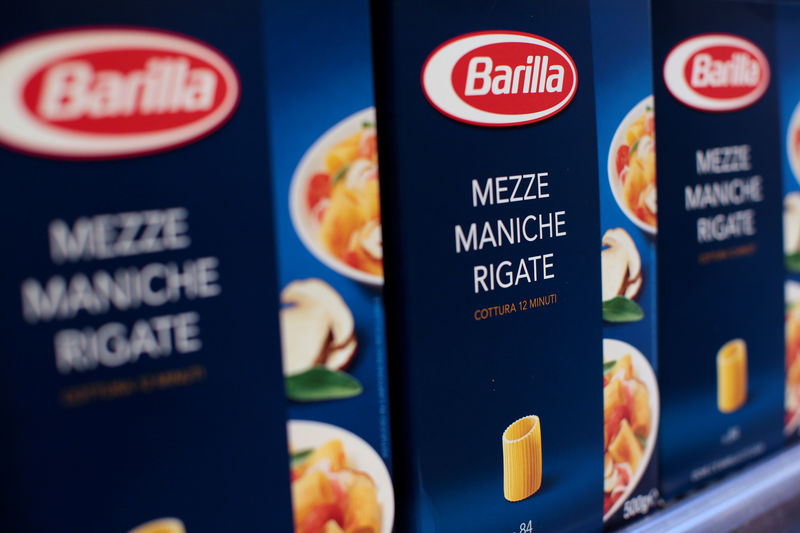By Crispian Balmer and Rod Nickel
ROME/WINNIPEG, Manitoba (Reuters) - All packets of pasta and rice sold in Italy will have to include labels of origin showing where the produce was grown, the government ruled on Thursday, in a move it said was aimed at protecting local farmers.
The agriculture and industry ministers signed a decree ordering the new labelling policy, saying it would run in an experimental fashion for two years, and criticising the European Union for not introducing the measure across the 28-nation bloc.
"We are putting Italy in the vanguard of Europe when it comes to labelling as a competitive tool for the Italian (agriculture) sector," Agriculture Minister Maurizio Martina said in a statement.
Canadian exporters and farmers fear the move will depress prices in Canada, the biggest global exporter of durum, the wheat used to make pasta. It would require Italian pasta makers to segregate supplies by country, adding to costs.
Annual Canadian sales to Italy are worth an estimated C$248 million ($197 million), based on average export volumes and International Grains Council price data.
The government decree said that pasta packaging must reveal where the wheat was grown and milled into semolina for pasta-making. Rice packaging will state where the rice was grown, treated and packaged.
Industry Minister Carlo Calenda said most Italian consumers wanted to know the origin of their food, adding that it was important to promote Italian farmers.
"We want to emphasise the importance of 'Made in Italy' and the quality of our production in order to compete with greater strength on international markets," he said in a statement.
The Canadian government is seeking clarification from Rome and assessing Italy's trade obligations under the World Trade Organization and free trade agreement between Canada and the European Union, a spokesman for Agriculture Minister Lawrence MacAulay said. There is no indication that Italy's move has affected trade yet, he said.
Cam Dahl, president of Cereals Canada, whose members include Cargill Inc (CARG.UL) and Richardson International, said he expected Italy's labels to take effect early next year.
"That would unquestionably harm our exports," he said.
Italy is Canada's second-biggest durum export market so far in the 2016-17 crop marketing year as of May, importing 676,000 tonnes. The United States is also a significant durum producer.
Italy may be subject to infringement proceedings from the European Commission, a process aimed at member states which breach EU law, according to Dahl.
